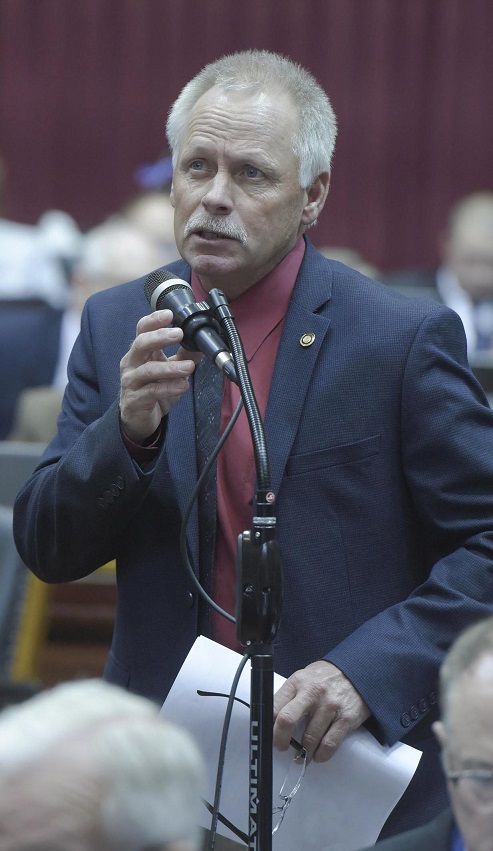The state House has proposed that Missouri shouldn’t create any new parks until it catches up on taking care of the ones it has.

It’s sent House Bill 698, sponsored by Representative Randy Pietzman (R-Troy), to the Senate. That would require that before any new parks are established and before any parks are expanded by more than 10-percent in acreage, the state’s current parks should be maintained, brought up-to-date, and have all maintenance work completed.
HB 698 would allow the Department of Natural Resources to accept the donation or gift of additional land, but no work could be done to it except to address public health, safety, or welfare concerns, until the other requirements of the bill are met. It would also require the Department to report annually to the General Assembly on maintenance at state parks and historic sites.
Pietzman said the bill is about making the Department of Natural Resources more accountable and more communicative with Missouri residents. He said the state has more than $200-million in state park maintenance backed up, but in recent years the Department has created and prepared new parks while letting others stay at various levels of disrepair.
La Monte Republican Dean Dohrman said the bill would go toward supporting one of the state’s top industries: tourism.
Washington Republican Paul Curtman said the bill represents the type of policy the state should be using on other issues as well.
“We should not be acquiring more property for our state parks if we don’t even have the ability to actually maintain the programs that we have right now,” said Curtman. “I think if we go back home and we tell people we had an opportunity to rein in government spending and make sure we’re spending money only on things that we can actually manage, people would expect us to say that we voted for that rather than against it.”
The bill passed out of the House 85-62; only a few more votes than enough necessary for passage. Many, including some of Pietzman’s fellow Republicans, said it goes too far.
High Ridge Republican John McCaherty said he supports seeking greater accountability, but said prohibiting new parks until all maintenance is caught up is unrealistic.
McCaherty said the bill would tie the hands of the new administration of Governor Eric Greitens (R) in response to lawmakers’ perception of mismanagement that occurred under Greitens’ predecessor.
Representative David Wood (R-Versailles) is concerned the bill would interfere with a project to add 144-miles of the former Rock Island Railroad to the state’s trail system. He said the bill’s prohibitions would not block the state from taking that property in an anticipated donation from Ameren, but it would prevent the state from putting fencing along it.
He is also concerned that without supervision of the newly-donated land, people will trespass on it.
HB 698 has gone to the Senate with four weeks left in the legislative session.
